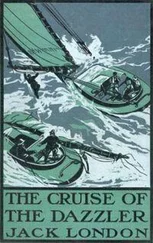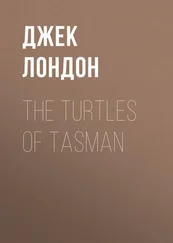Jack London - The Turtles of Tasman
Здесь есть возможность читать онлайн «Jack London - The Turtles of Tasman» весь текст электронной книги совершенно бесплатно (целиком полную версию без сокращений). В некоторых случаях можно слушать аудио, скачать через торрент в формате fb2 и присутствует краткое содержание. Жанр: Классическая проза, на английском языке. Описание произведения, (предисловие) а так же отзывы посетителей доступны на портале библиотеки ЛибКат.
- Название:The Turtles of Tasman
- Автор:
- Жанр:
- Год:неизвестен
- ISBN:нет данных
- Рейтинг книги:3 / 5. Голосов: 1
-
Избранное:Добавить в избранное
- Отзывы:
-
Ваша оценка:
- 60
- 1
- 2
- 3
- 4
- 5
The Turtles of Tasman: краткое содержание, описание и аннотация
Предлагаем к чтению аннотацию, описание, краткое содержание или предисловие (зависит от того, что написал сам автор книги «The Turtles of Tasman»). Если вы не нашли необходимую информацию о книге — напишите в комментариях, мы постараемся отыскать её.
The Turtles of Tasman — читать онлайн бесплатно полную книгу (весь текст) целиком
Ниже представлен текст книги, разбитый по страницам. Система сохранения места последней прочитанной страницы, позволяет с удобством читать онлайн бесплатно книгу «The Turtles of Tasman», без необходимости каждый раз заново искать на чём Вы остановились. Поставьте закладку, и сможете в любой момент перейти на страницу, на которой закончили чтение.
Интервал:
Закладка:
I saw him to-day, seated at the desk, writing. It gave me quite a shock, because I had thought he was quite dispelled. Nevertheless, on looking steadily, I found that he was not there-the old familiar trick of the brain. I have dwelt too long on what has happened. I am becoming morbid, and my old indigestion is hinting and muttering. I shall take exercise. Each day I shall walk for two hours.
It is impossible. I cannot exercise. Each time I return from my walk, he is sitting in my chair at the desk. It grows more difficult to drive him away. It is my chair. Upon this I insist. It was his, but he is dead and it is no longer his. How one can be befooled by the phantoms of his own imagining! There is nothing real in this apparition. I know it. I am firmly grounded with my fifty years of study. The dead are dead.
And yet, explain one thing. To-day, before going for my walk, I carefully put the fountain pen in my pocket before leaving the room. I remember it distinctly. I looked at the clock at the time. It was twenty minutes past ten. Yet on my return there was the pen lying on the desk. Some one had been using it. There was very little ink left. I wish he would not write so much. It is disconcerting.
There was one thing upon which Jim and I were not quite agreed. He believed in the eternity of the forms of things. Therefore, entered in immediately the consequent belief in immortality, and all the other notions of the metaphysical philosophers. I had little patience with him in this. Painstakingly I have traced to him the evolution of his belief in the eternity of forms, showing him how it has arisen out of his early infatuation with logic and mathematics. Of course, from that warped, squinting, abstract view-point, it is very easy to believe in the eternity of forms.
I laughed at the unseen world. Only the real was real, I contended, and what one did not perceive, was not, could not be. I believed in a mechanical universe. Chemistry and physics explained everything. "Can no being be?" he demanded in reply. I said that his question was but the major promise of a fallacious Christian Science syllogism. Oh, believe me, I know my logic, too. But he was very stubborn. I never had any patience with philosophic idealists.
Once, I made to him my confession of faith. It was simple, brief, unanswerable. Even as I write it now I know that it is unanswerable. Here it is. I told him: "I assert, with Hobbes, that it is impossible to separate thought from matter that thinks. I assert, with Bacon, that all human understanding arises from the world of sensations. I assert, with Locke, that all human ideas are due to the functions of the senses. I assert, with Kant, the mechanical origin of the universe, and that creation is a natural and historical process. I assert, with Laplace, that there is no need of the hypothesis of a creator. And, finally, I assert, because of all the foregoing, that form is ephemeral. Form passes. Therefore we pass."
I repeat, it was unanswerable. Yet did he answer with Paley's notorious fallacy of the watch. Also, he talked about radium, and all but asserted that the very existence of matter had been exploded by these later-day laboratory researches. It was childish. I had not dreamed he could be so immature.
How could one argue with such a man? I then asserted the reasonableness of all that is. To this he agreed, reserving, however, one exception. He looked at me, as he said it, in a way I could not mistake. The inference was obvious. That he should be guilty of so cheap a quip in the midst of a serious discussion, astounded me.
The eternity of forms. It is ridiculous. Yet is there a strange magic in the words. If it be true, then has he not ceased to exist. Then does he exist. This is impossible.
I have ceased exercising. As long as I remain in the room, the hallucination does not bother me. But when I return to the room after an absence, he is always there, sitting at the desk, writing. Yet I dare not confide in a physician. I must fight this out by myself.
He grows more importunate. To-day, consulting a book on the shelf, I turned and found him again in the chair. This is the first time he has dared do this in my presence. Nevertheless, by looking at him steadily and sternly for several minutes, I compelled him to vanish. This proves my contention. He does not exist. If he were an eternal form I could not make him vanish by a mere effort of my will.
This is getting damnable. To-day I gazed at him for an entire hour before I could make him leave. Yet it is so simple. What I see is a memory picture. For twenty years I was accustomed to seeing him there at the desk. The present phenomenon is merely a recrudescence of that memory picture-a picture which was impressed countless times on my consciousness.
I gave up to-day. He exhausted me, and still he would not go. I sat and watched him hour after hour. He takes no notice of me, but continually writes. I know what he writes, for I read it over his shoulder. It is not true. He is taking an unfair advantage.
Query: He is a product of my consciousness; is it possible, then, that entities may be created by consciousness?
We did not quarrel. To this day I do not know how it happened. Let me tell you. Then you will see. We sat up late that never-to-be-forgotten last night of his existence. It was the old, old discussion-the eternity of forms. How many hours and how many nights we had consumed over it!
On this night he had been particularly irritating, and all my nerves were screaming. He had been maintaining that the human soul was itself a form, an eternal form, and that the light within his brain would go on forever and always. I took up the poker.
"Suppose," I said, "I should strike you dead with this?"
"I would go on," he answered.
"As a conscious entity?" I demanded.
"Yes, as a conscious entity," was his reply. "I should go on, from plane to plane of higher existence, remembering my earth-life, you, this very argument-ay, and continuing the argument with you."
It was only argument [1] [1] (Forcible-ha! ha!-comment of Rudolph Heckler on margin.)
. I swear it was only argument. I never lifted a hand. How could I? He was my brother, my elder brother, Jim.
I cannot remember. I was very exasperated. He had always been so obstinate in this metaphysical belief of his. The next I knew, he was lying on the hearth. Blood was running. It was terrible. He did not speak. He did not move. He must have fallen in a fit and struck his head. I noticed there was blood on the poker. In falling he must have struck upon it with his head. And yet I fail to see how this can be, for I held it in my hand all the time. I was still holding it in my hand as I looked at it.
It is an hallucination. That is a conclusion of common sense. I have watched the growth of it. At first it was only in the dimmest light that I could see him sitting in the chair. But as the time passed, and the hallucination, by repetition, strengthened, he was able to appear in the chair under the strongest lights. That is the explanation. It is quite satisfactory.
I shall never forget the first time I saw it. I had dined alone downstairs. I never drink wine, so that what happened was eminently normal. It was in the summer twilight that I returned to the study. I glanced at the desk. There he was, sitting. So natural was it, that before I knew I cried out "Jim!" Then I remembered all that had happened. Of course it was an hallucination. I knew that. I took the poker and went over to it. He did not move nor vanish. The poker cleaved through the non-existent substance of the thing and struck the back of the chair. Fabric of fancy, that is all it was. The mark is there on the chair now where the poker struck. I pause from my writing and turn and look at it-press the tips of my fingers into the indentation.
Читать дальшеИнтервал:
Закладка:
Похожие книги на «The Turtles of Tasman»
Представляем Вашему вниманию похожие книги на «The Turtles of Tasman» списком для выбора. Мы отобрали схожую по названию и смыслу литературу в надежде предоставить читателям больше вариантов отыскать новые, интересные, ещё непрочитанные произведения.
Обсуждение, отзывы о книге «The Turtles of Tasman» и просто собственные мнения читателей. Оставьте ваши комментарии, напишите, что Вы думаете о произведении, его смысле или главных героях. Укажите что конкретно понравилось, а что нет, и почему Вы так считаете.







